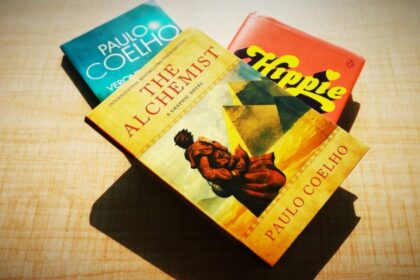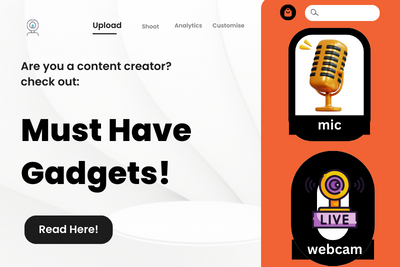Beyond writer’s block, I have faced the challenge of selecting a topic for my next blog or YouTube Video.
Over the years, I learned that the success of a blog or a YouTube video depends on the idea you choose to work on.
If the idea is not engaging, all the hard work you do in writing a blog or creating a video may go to waste.
Therefore, when you choose a topic to write on, ensure that your content reaches a broader audience and fulfills its purpose of building your brand, making a sale, increasing your social media following, or anything on your priority list to help you continue your writing journey.
The quick steps I take before I start writing on a topic are:
| 1. | My initial interest in the subject matter |
| 2. | Does the topic align with my niche, YouTube channel, or area of expertise? |
| 3. | Can I share personal experiences in the blog that will resonate with the audience and get them to connect with me? |
The more extended methods I use to find my topics are as follows:
1. Latest Trends: Exponential Growth
Staying updated with your niche can prove to be beneficial.
Although it can be time-consuming to stay updated, as they say, there is no free lunch.
Writing on the internet and creating videos is not a Get-Rich-Quick scheme.
Staying up-to-date can cost time, but it helps reach a broader audience immediately. For years, I struggled as a writer, and I wish I knew that using the latest trend could be a game-changer.
Now, I create content daily, but when there is a trend related to English Literature, I jump on it and grab the momentum of the audience flowing in the trend.
2. Bookmark Websites: My Favourite Method
When I find myself stuck and running out of ideas for writing, I find inspiration from other blogs. There are countless blogs and articles on the web providing a wide range of topics.
7/10 times, I find inspiration by simply surfing the internet.
Now, please understand me.
Taking ideas from other blogs does not mean that you copy the content and update the same on your website. It’s about getting ideas and then molding them in a way that connects with your personality and writing style.
That’s what all the writers have been doing for thousands of years now. Do not forget that Shakespeare, too, drew inspiration from other playwrights for almost all of his plays. The famous one is Thomas Kyd’s Spanish Tragedy for his play Hamlet.
Bookmark the websites that you love reading. That can also be the source of inspiration for your next blog.
You can also bookmark our blog for regular updates on literature.
3. Comment Section: Goldmine of Ideas
The comment section of a blog or YouTube video has always been one of my favorite resources for finding the next topic. Engaging with the audience and creating content that matches the audience’s interests is incredibly effective.
It helps in coming up with a new blog post or a video but also helps build trust with readers.
Several times, I have used this technique to find topics for my YouTube channel Limitless Literature.
All I can say after building a community of breath-taking literature students is that the comment section is the place where you will find a goldmine of ideas.
It’s your turn now: let me know in the comments below the topic you want me to cover. I’d be pleased to create a new blog post tailored to your needs.
4. Keyword Research: Long Term Traffic
Although I’m not a big fan of researching keywords before writing a blog, once in a while, I find topics that interest me by looking at popular search queries.
Of course, keyword research is valuable as it directly helps you know the number of people searching for a query. You can create a blog around it and increase the likelihood of your content being discovered on the Google search engine.
Now, the problem with SEO is that it takes time for Google to index the page before letting our blog appear in the search engine. Moreover, there are other factors like backlinks, domain authority, etc.
I will not go into technical details in this blog because I also do not use it much.
What I found is that good content always finds its audience. So, keep sharing ideas and creating unique content for the audience. A little bit of keyword research will help in long-term.
5. Quora: Available Forever
I had never considered Quora as a source of inspiration for my blogs.
Still, recently, I have relied on the platform so much that all my recently uploaded videos on YouTube are somewhere the doubts of students on Quora.
After starting the YouTube channel Limitless Literature, at one point in time, I was stuck and running out of ideas for videos.
Although there are many authors and published works in English Literature that we can cover as teachers, when strategizing for UGC-NET English Literature competitive exams, we have to brainstorm new ideas.
With each visit to Quora, I found myself immersed in discussions of the literary world, and that gave me a lot of ideas to come up with engaging video ideas on English Literature.
“Have you used any of the above methods to know more about English Literature Competitive Exams? Maybe you have used different platforms for academic research. Your views in the comment section can spark literary insights. Let me know below.”



